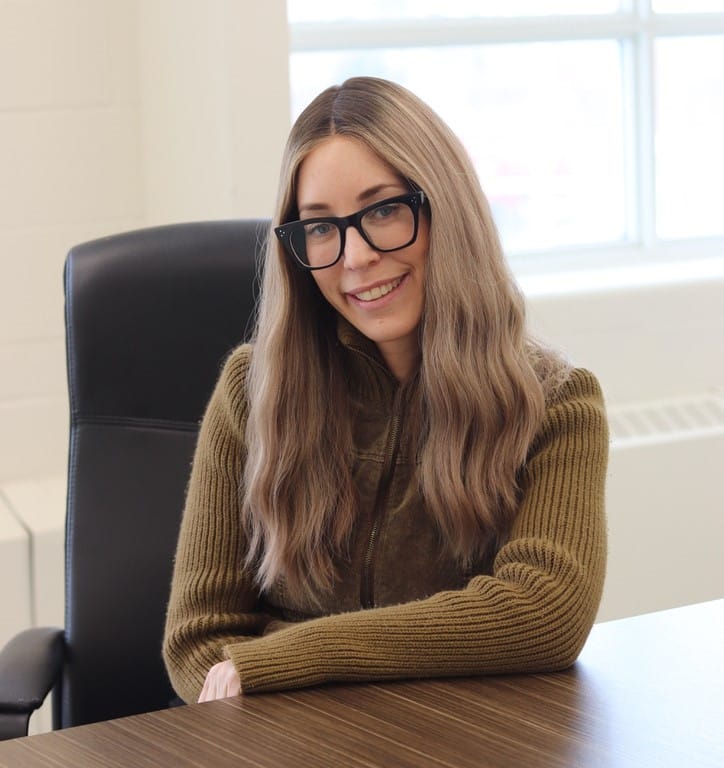Toronto-based educator Lisa Gelberman over the years saw a consistent problem with the educational system: she said it failed to address the fact that a third of students in North America have various reading difficulties.
“When kids struggle academically, they struggle behaviourally, they struggle socially, and it’s much harder to fix, if ever. A huge spiral,” said Gelberman, principal at Kayla’s Children Centre (KCC).
The need was so great to help those falling through the literacy cracks, that she vowed to take matters into her own hands and find a way to solve the problem.
Over time she developed a groundbreaking online reading program called Literacy Decoded, that launched in 2022. Its aim is to train teachers to support students with learning disabilities, dyslexia, and other developmental delays.
KCC is school, a therapy clinic, and recreational centre, for children with special needs – and some students who have extreme delays, who would have faced tremendous learning hurdles otherwise, have even learned to read because of her program.

The program has been met with tremendous success since its inception, as several local schools have purchased the course, and adopted its curricula. She has also sold it to a few hundred doctors and dozens of teachers across North America.
The mother of five began her career as a teacher at a public school, teaching first grade for three years, then, armed with various course qualifications, she began teaching special education; later leading a class for students with learning disabilities, dyslexia, severe ADHD. Afterward, she taught children with autism.
“I was always very passionate about teaching kids to read. It was my dream. People have told me that doctors told their kids they’ll always have challenges learning to read, but I’ve helped them bounce back. I really liked the journey trying to explore different paths to teaching kids to read,” she said.
Up until about five years ago, she said that most schools across North America used a methodology called the “whole language approach,” she noted. But a full third of children do not pick up learning from this method, she said. “So kids struggle, and I just knew there’s something off about it.”
“Every year, I got so close teaching this one child to read. And he came back after the summer, and it’s like, everything I taught him was lost. I didn’t understand why. That’s when I started to look for other programs to help.”
She discovered an alternative, the Orton-Gillingham Approach, where on her own dime, and a year and a half of study, she became certified to teach it.

After being hired by Kayla’s, she applied these methods with the institution’s kids, and found successes in teaching children who otherwise found it impossibly difficult to read.
Building upon the program, she videod her own son Zev learning with the Approach, and used it as a teaching aid as a way to show teachers and parents how to implement it. “He’s basically jumped three grade levels in six months. And even his teacher at the time couldn’t believe it,” she said.
“And that’s how I actually was able to improve upon the program. So it was really amazing. I was training the teachers, and also other schools asked me to come in for training, but I couldn’t grab the time, so I decided to make a course of my own.”
According to Gelberman, the two years of remote learning during Covid only made the program more relevant, and needed, given how so many children who require in-person interaction to absorb materials, were robbed of this critical time in their learning.
“I’m just so happy that the kids who would have fallen through the cracks are now able to read,” she said, adding that scores of children are being mainstreamed who would not ordinarily be.
Four years in development, the “huge pieces” of her program include that it does not involve memorizing words, nor looking at pictures, which she said was relied upon heavily as teaching aids in the past. Instead, what works in her course is sounding out words, learning all the different sound combinations, and learning syllables.
Her program benefits from being asynchronous, that is, at the student’s own pace, and each lesson is through video, so the lessons feels “live.”
“Because just like we always say, ‘good teaching is modeling for students.’ That’s exactly what I do in my program,” she said. In addition, there are twice-monthly coaching sessions with teachers, where they share with each other their struggles and problem solving methods.
“Teachers, like children, can’t just do something new on their own. They need a lot of support and hand holding,” she said. “Teachers don’t want to have more work on their plate. So I’ve created all the resources for them. I show them exactly how to teach and I have videos modeling it. I provide them with a summary of every single weapon. It’s really just very, very intensive, and very supportive. I think that’s the key.”
By focusing on the foundational skill of reading, Gelberman has effectively provided a lifeline to countless children who might otherwise have been left behind in the traditional educational system. This impact is particularly significant in a time when educational systems worldwide are grappling with the effects of remote learning, and increased recognition of diverse learning needs.
Literacy Decoded empowers teachers with the tools to continue this important work independently.
“The reason why I’m doing this, why I went on this journey,” she said, “was because I had this huge passion for giving, for helping children learn to read. It’s the most basic and functional skill you can help someone with. I truly feel the right training from the right teachers can help kids read.”

